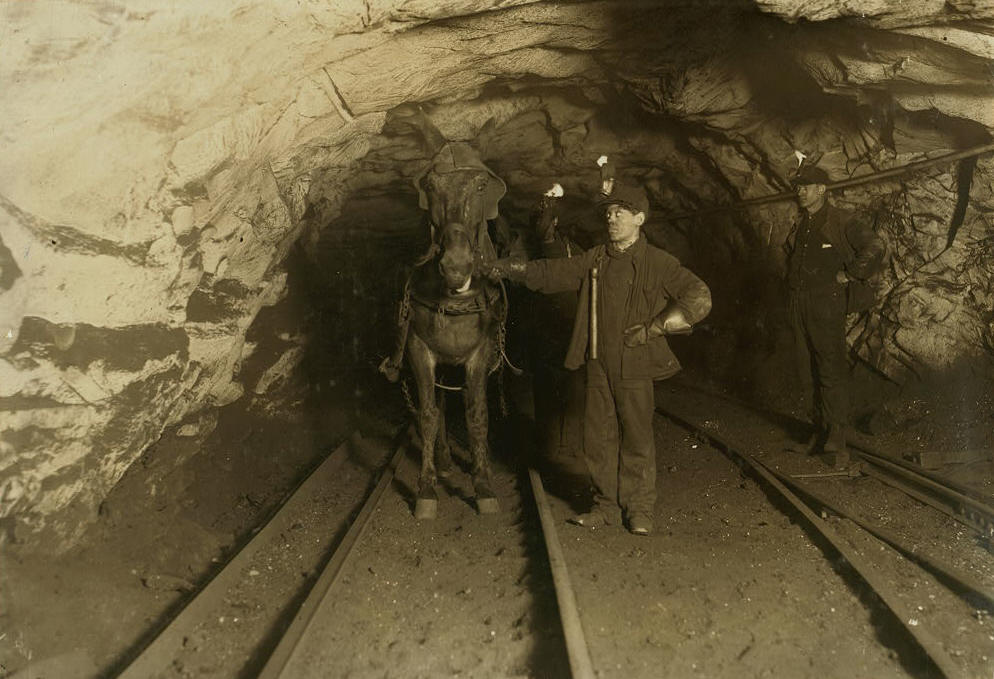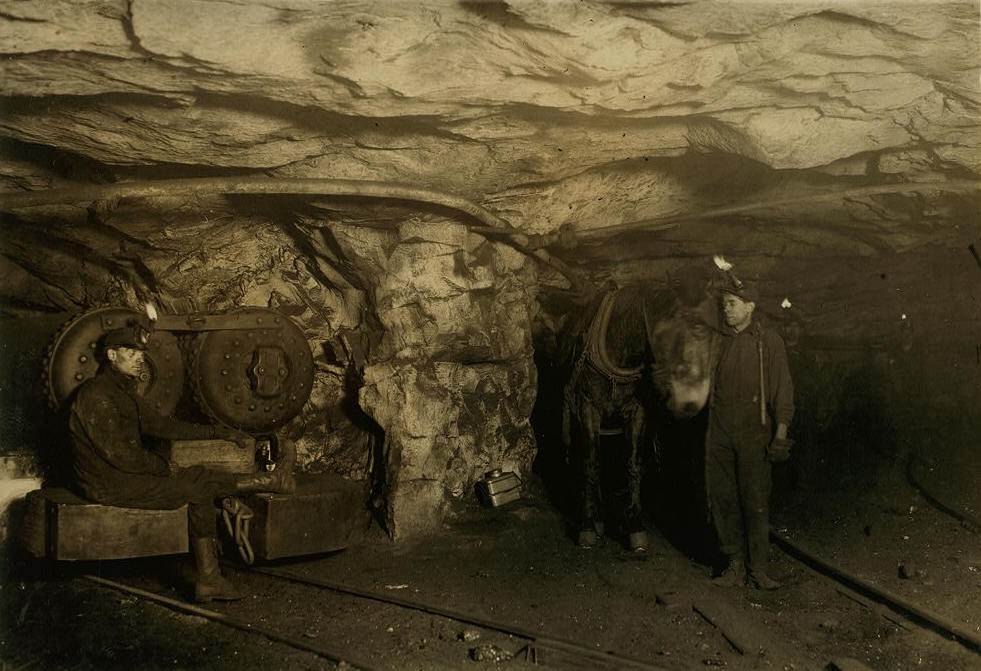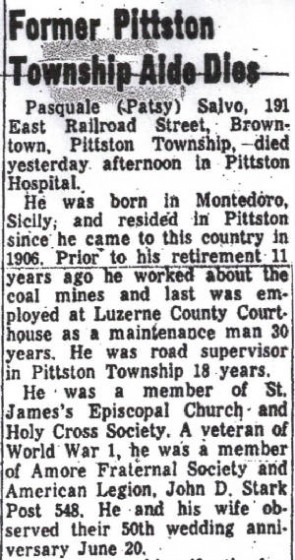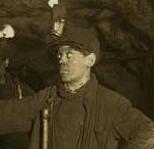
Lewis Hine caption: A young leader and a driver, Shaft #6, Pennsylvania Coal Company. Pasquale Salvo and Sandy Castina. Location: Pittston, Pennsylvania, January 1911.

Lewis Hine caption: Mule power and motor power. A Young Driver, Shaft #6, Pennsylvania Coal Company. Location: Pittston, Pennsylvania, January 1911.
Lewis Hine took over 30 photographs in Pittston in January of 1911. It was a tough mining town where hundreds of (mostly Italian) child laborers worked, many of them the notorious “breaker boys” made famous by Hine and other photographers of the time. In the 100 years since then, the area has seen the disappearance of its coal-based economy, the devastating floods caused by Hurricane Agnes in 1972, and most recently, more serious flooding from Hurricane Irene and its immediate successor, Storm Lee. But it has endured, probably because each generation managed to sustain the toughness of their early ancestors.
Pasquale (Patsy) Salvo was one of those tough ancestors, probably as tough and stubborn as the mules he worked with. His father, Salvatore (Sam) Salvo, sailed from Montedoro, Italy, to Ellis Island on the Sicilian Prince in 1905. His wife, Calogera (Mary) Salvo, and their children came over a year later. Both Sam and Patsy went to work in the mines, Patsy as a door tender. In 1920, both of them still worked in the mines; son Ross, 16, was a breaker boy. By that time, Patsy had been a naturalized citizen for five years. Sam and Mary lived at 191 East Railroad Street, a house they owned. It is still owned and occupied by members of the Salvo family.
Patsy, born on January 6, 1893, married Mary Ciali on June 20, 1919. They had nine children, four boys and five girls. He passed away on June 23, 1969, at the age of 76, three days after their 50th wedding anniversary. Mary died in 1999, at the age of 94.
I interviewed one of Mr. Salvo’s daughters, but due to family health issues, the interview was never formally completed, nor was I able to obtain any family photographs from her. The following is a summary of what she told me about her father. I have withheld her name to protect her privacy.
She remembered that he talked about the mules he worked with when he was a boy (just like in the Hine photograph), and that they were mean and stubborn. She said that her father went through some hard times when he was growing up, and that working in the mines was like “slave labor” for the children. When he grew up, he was involved in politics and used to knock on doors to get people to register to vote.
Before she was born, her father was a musician and played trumpet in a band. He also acted and sang in stage plays. He served in World War I, and he boxed when he was a young man. Though he didn’t get far in school, he was very intelligent, a “self-made man,” as she described him. Later in life, he suffered from emphysema, which she said was caused by working in the mines. She talked fondly about her father having a large garden, with tomatoes, kale, eggplant and zucchini. She told me, “I remember him cooking garlic on the stove and eating chestnuts.”


*Story published in 2011.